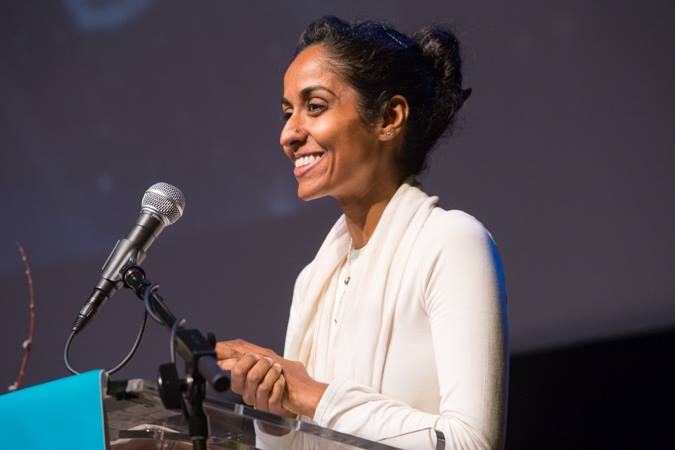 Today’s ‘Five Questions’ series (with our fabulous Melibee speakers) are answered by one of my favorite New Yorkers – Fatima Ashraf. Our own Tara Nygaard asked Fatima her opinion on a Islam, public policy and mentoring – and we can’t wait for you to hear it!
Today’s ‘Five Questions’ series (with our fabulous Melibee speakers) are answered by one of my favorite New Yorkers – Fatima Ashraf. Our own Tara Nygaard asked Fatima her opinion on a Islam, public policy and mentoring – and we can’t wait for you to hear it!
1. Can you share the reasoning behind the current trend for Muslim American woman to unveil, or ‘dejab’?
There’s no one reason for this trend. Hijab, and religion for that matter, are very personal things. A woman chooses to wear hijab for many reasons and chooses to “de-jab” for many reasons. I can only speculate that increasing Islamophobia, discrimination in the workplace, and the pressure of bearing the responsibility of representation of an oppressed population are among some of the reasons.
2. Do most women in your family wear a hijab?
We have women who have worn hijab from a very young age. We have women who have never worn it. We have some who took it off and others who took it off and put it back on. Again, hijab is a very personal choice and everyone has their own reasons for wearing it/not wearing it. For many women in my family, there’s cultural reasons for their decisions – South Asian as well as American culture.

3. From 2007-2012 you were Senior Policy Advisor to the Mayor of New York City. Was there a particular experience that inspired you to pursue a career in public health?
My time as a student organizer in college helped me see that population-based work can have far reaching impacts. I chose public health because of my background in science and medicine and love of sociology and politics. As I saw more and more people enter and graduate medical school, I saw how horribly capitalistic and devoid of empathy our health care system is. The hierarchy, the power dynamics between physician and patient, and doctors’ limitations to advance public policy made me turn and run the other way. 15 years later, I regret the decision in that when operating in a system, having the privilege and clout that comes with the MD title would have been helpful in my policy pursuits. However, I avoided the risk of getting brainwashed in medical school.
4. Did you have a mentor early on in your career?
I wish. I had many role models, people who did incredible work who I wanted to emulate. But I was one of those young people that did not have the supportive person who showed me the ropes or took me under their wing. I think that’s one of the reasons why I am so passionate about fellowship and internships, why I’ve designed so many fellowship programs, hired and worked with so many interns, and continue to support mentor-mentee relationships whenever I can.
5. If you could choose one policy initiative as your legacy, what would it be?
There’s no way I can choose just one. Policies are so interrelated. Health is related to education is related to housing is related to criminal justice is related to poverty and so on. I think more important than choosing one policy is choosing policymakers with a particular mindset. The mindset that everything we do must be pro-human. That being pro-human does not mean exacerbating inequities and inequalities. Pro-human is pro-all humans and no human is better than another. No matter what. Make policies based off that and see what happens.
Contact the hive if you are interested in booking Fatima to speak at an event you are planning.

